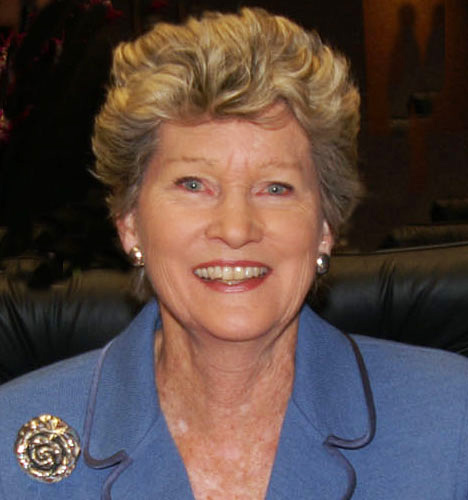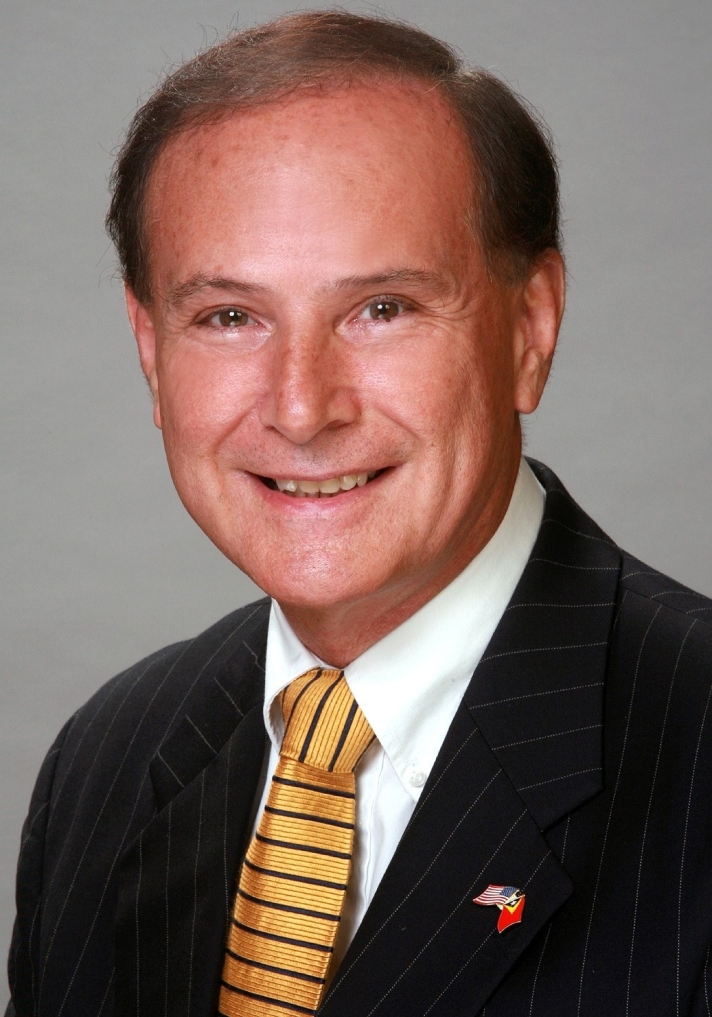 Congratulations Hawaii as we celebrate 50 years of statehood. This beautiful state has so much to offer the world, especially with the most recent example of the election of our 44th President of the United States of America, President Barack Obama. I firmly believe our multi ethnic people and culture coupled with the Aloha spirit helped shape President Obama – a direct contribution to his abilities to win over a nation and bring people together.
Congratulations Hawaii as we celebrate 50 years of statehood. This beautiful state has so much to offer the world, especially with the most recent example of the election of our 44th President of the United States of America, President Barack Obama. I firmly believe our multi ethnic people and culture coupled with the Aloha spirit helped shape President Obama – a direct contribution to his abilities to win over a nation and bring people together.
I just returned from a conference where I was able to talk to legislators from a variety of states that are having similar struggles such as ours. California’s executive and legislative branches are feuding with one another and the result is a gridlocked government on the verge of bankruptcy. The very last thing that we need here in Hawaii is to have our differences blind and overcome our goals for this session.
Your House Republicans believe, especially in this day and time, that we need to support the existing pillars of our economy; tourism, construction, and our military. We also believe that we should create an environment to keep our businesses open and growing so labor keeps working. And, we need to do these things while ensuring steps are taken toward our long range goals.
Recently an audit criticized the Hawaii Tourism Authority for a lack of leadership and vision. Rather than pointing fingers, we need to come together and support HTA in these tough times. For instance, the heritage tourist stays longer, spends more, respects our environment, and wants to understand our history. Working with the heritage tourism industry we can create a marketing plan for HTA. This could save money and time.
In the good times we routinely ignored infrastructure needs in favor of fancy programs. We need to come together to address these long overdue needs while helping our economy. We need to support the Governor’s plan to streamline the 1.9 billion in existing construction projects. Governor Lingle, your Administration is taking on a huge responsibility to accomplish the much needed modernization of our airports, harbors, and highways. Your aim for transparency and innovation in planning and execution are concepts we can support.
The military in Hawaii plays a key part in defending our nation and bolstering our economy. This state has a love/hate relationship with the military. We need to support our military and are proposing legislation to do so.
Another vital way for us to strengthen the economy is to keep businesses open and to keep labor working. Our people cannot pay their mortgages and their rent without jobs. With our state tax revenue shortfall, government cannot be the answer for everything. Like government, businesses are experiencing loss in revenue. Too often, this state looks to squeeze businesses to make the books balance. Business, labor, and government need to come together to move us past these economic struggles in a way where businesses can thrive, workers can realize a better quality of life, and government can craft a fiscally sound budget. This is not the time to raise taxes whether unemployment insurance or business fees. Let us commit to making it better for business and find ways to remove unnecessary regulations.
Let us not underestimate the power of the individual to create their own opportunities. I suspect that with our unemployment numbers increasing and the job market tightening, people might want to start their own business as their chance, their opportunity. Let’s encourage that behavior as another source of job growth.
Your Republican members also recognize areas where we must step in to help employees directly. We are asking the legislature and the Governor to partner with us to help protect pensions. Employees should not lose a lifetime of investments earned through their hard work.
Many times, the legislature gets caught up in the important issues of the day; however, we must simultaneously work to achieve our goals for the future. We owe it to future generations of Hawaii’s people to stay committed to creating better opportunities for them. It is not an option to sacrifice tomorrow for today. This is why your Republican caucus is committed to the Hawaii Clean Energy Initiative and ACT 221 to truly diversify our economy.
The Hawaii Clean Energy Initiative, a partnership between the State of Hawaii and the U.S. Department of Energy, will be offering a proposal that synchronizes a variety of efforts to be able to meet the renewable energy standard portfolio goal of 70% renewable energy by 2030. We are pleased to adopt the recommendations of HCEI. This is not easy for some of us in the Republican caucus because of the need for the inclusion of certain mandates. However, we are willing to come together with the Majority on this proposal, and the trade off is worthwhile. Achieving this goal will keep 7 billion dollars of Hawaii’s money in Hawaii, a substantial positive effect for our economy. It is good for the environment, and makes us good stewards of our natural resources. It also gives us energy security, which is also economic security.
Throughout the decades, all of our State’s governors have tried to establish another sector of our economy. We scream that we need to diversify our economy yet many are unwilling to take the risk and make the investment to do so.
Act 221, the high tech tax credit, has received a lot of negative attention. We need to move past this. We need to come together to realize that the aggressive nature of Act 221’s tax credit is needed in order to build a high tech pillar of our economy. Act 221 is a complicated machine with many gears that works to convince people, companies, technologies, research, and money to invest in Hawaii. One investor I interviewed described Hawaii as “a toxic business environment” and if not for Act 221, many companies and their investors would not be here contributing 1.4 billion dollars into our economy.
Capital investment is shrewd, and will go where it has the best potential with the least risk. I believe that not extending Act 221 will equate to the loss of good paying jobs for our people and work against diversifying our economy. Act 221 attracts the international and local investor and high technology companies that could take their money or ideas anywhere on the globe and gets them to say “Let’s try Hawaii”.
Our goals to educate our keiki in science, technology, engineering, and math, otherwise known as STEM, will only be halfway achieved if we are unable to find local jobs for them in the future.
I would like to introduce to you five individuals who have been able to live in Hawaii due to Act 221. Tamotsu Hirai, Laboratory Technician at Kuehnle Agrosystems, has been able to live close to his family and has the job the he desires in his field of work. Teri Wong, Scientist at Panthera Biopharma, is an Aiea High School and Washington State graduate. Darren Kimura, CEO of Sopogy, a leader in MicroCSP technologies, born and raised in Hilo. Keiki Pua Dancil of Chitpure, a Kamehameha graduate, was brought home as a Director of Research and Development after graduating from Santa Clara University, earned her PHD from UC San Diego and a MBA from Harvard Business School. And Henk Rogers, CEO of Blue Planet Software, who studied Computer Science at our University of Hawaii and successfully sold his first 221 company and now has three new ones in his incubator.
On New Year’s Day, the Akiona side of our family started a new annual tradition. We potlucked Saimin. My husband, Peter and I, brought the Saimin noodles and dashi, while everyone else brought their favorite garnish. Peter and I started to debate if Saimin was of Japanese or Chinese origin. What I learned brought so much more meaning to our new tradition.
Saimin means thin noodle. Living on the plantation, all of the different ethnic groups would come together to cook communally. Each group offered up what they could spare in order to save money and create a meal for all. Most likely, dashi and kamaboko was from the Japanese, noodles and won bok from the Chinese, green onions from the Filipinos, and so on.
I share this story not only because my grandparents were plantation laborers who came from the Philippines in search of a better life for the generations to follow, but because I’m reminded in tough times we need to pull together.
Whether employee or employer, economic or environmental, old or new, democrat or republican, executive or legislative, like the example of the different cultures working together in the plantations, we bring our differences to the table and create benefits for all. We must focus on keeping businesses open and labor working while staying committed to creating a better future for Hawaii’s generations to come.
Tough times are here. But if we are committed to coming together, we will forge a better tomorrow. Mahalo.
 State Representative Cynthia Thielen (R, 50th District) hailed today the introduction of a measure that seeks to protect the
State Representative Cynthia Thielen (R, 50th District) hailed today the introduction of a measure that seeks to protect the  Congratulations Hawaii as we celebrate 50 years of statehood. This beautiful state has so much to offer the world, especially with the most recent example of the election of our 44th President of the United States of America, President Barack Obama. I firmly believe our multi ethnic people and culture coupled with the Aloha spirit helped shape President Obama – a direct contribution to his abilities to win over a nation and bring people together.
Congratulations Hawaii as we celebrate 50 years of statehood. This beautiful state has so much to offer the world, especially with the most recent example of the election of our 44th President of the United States of America, President Barack Obama. I firmly believe our multi ethnic people and culture coupled with the Aloha spirit helped shape President Obama – a direct contribution to his abilities to win over a nation and bring people together.  When trying to understand what happened to our economy in October when our banking system took a tailspin and led to national panic, I think of FDR’s famous quote about fear and what it meant then and means now.
When trying to understand what happened to our economy in October when our banking system took a tailspin and led to national panic, I think of FDR’s famous quote about fear and what it meant then and means now.